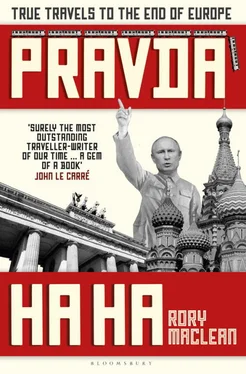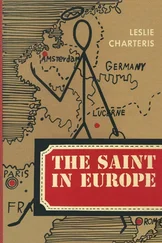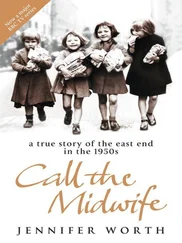Rory MacLean - Pravda Ha Ha - True Travels to the End of Europe
Здесь есть возможность читать онлайн «Rory MacLean - Pravda Ha Ha - True Travels to the End of Europe» весь текст электронной книги совершенно бесплатно (целиком полную версию без сокращений). В некоторых случаях можно слушать аудио, скачать через торрент в формате fb2 и присутствует краткое содержание. Город: London, Год выпуска: 2019, ISBN: 2019, Издательство: Bloomsbury Publishing, Жанр: Путешествия и география, Публицистика, на английском языке. Описание произведения, (предисловие) а так же отзывы посетителей доступны на портале библиотеки ЛибКат.
- Название:Pravda Ha Ha: True Travels to the End of Europe
- Автор:
- Издательство:Bloomsbury Publishing
- Жанр:
- Год:2019
- Город:London
- ISBN:978-1-4088-9652-5
- Рейтинг книги:3 / 5. Голосов: 1
-
Избранное:Добавить в избранное
- Отзывы:
-
Ваша оценка:
- 60
- 1
- 2
- 3
- 4
- 5
Pravda Ha Ha: True Travels to the End of Europe: краткое содержание, описание и аннотация
Предлагаем к чтению аннотацию, описание, краткое содержание или предисловие (зависит от того, что написал сам автор книги «Pravda Ha Ha: True Travels to the End of Europe»). Если вы не нашли необходимую информацию о книге — напишите в комментариях, мы постараемся отыскать её.
Pravda Ha Ha: True Travels to the End of Europe — читать онлайн бесплатно полную книгу (весь текст) целиком
Ниже представлен текст книги, разбитый по страницам. Система сохранения места последней прочитанной страницы, позволяет с удобством читать онлайн бесплатно книгу «Pravda Ha Ha: True Travels to the End of Europe», без необходимости каждый раз заново искать на чём Вы остановились. Поставьте закладку, и сможете в любой момент перейти на страницу, на которой закончили чтение.
Интервал:
Закладка:
No one on the train was smiling now.
SWITZERLAND
34
Waiting for Gorby
‘Who did you meet?’ exclaimed Dmitri Denisovich, the chicken tsar, his crooked gob open and teeth jagged as a broken Moskovskaya bottle.
‘Mikhail Sergeyevich,’ repeated Vasya, his driver.
Six months had passed since we’d parted in Moscow, six months since I’d sampled Putin’s Pecker, stood on top of the world, and endured the most stonking hangover of my life. Now I sat with Dmitri on a Philippe Starck sofa staring open-mouthed at Vasya. He stood in front of us, silhouetted against a broad balcony window, backed by a chocolate-box sweep of mountains, telling us about his astonishing encounter.
‘I was waiting to pick up puppy from beauty shop. I walking to next door park. I sit on bench beside a man. It seem like nothing special.’
‘Mikhail Sergeyevich Gorbachev ,’ said Dmitri, putting down his drink, lifting the coiffed dog off his lap and handing it to the Moldovan maid. ‘The man on bench was Gorbachev.’
‘He not look like on television. He look so… old.’
‘Did you talk to him?’ I asked. I’d trekked all the way to Crimea to stand in the footsteps of the former Soviet leader, only to have him rock up in person around the corner from Dmitri’s Swiss penthouse.
‘When I recognise him, I think how he change world, and how now he not so busy,’ Vasya answered me. ‘So I ask him just one word. I say, “ Skuchayete ?”’
‘Are you bored?’ repeated Dmitri, translating for me, in disbelief. ‘You asked Russia’s greatest leader if he’s bored?’
Vasya nodded. ‘And he answer: “Very much.” It was honest and simple answer. It was Russian answer. More time passing we just look on lake. I start thinking about my childhood, about time of perestroika. So I ask him one more thing. I ask: “Why?”’
‘“ Tak bylo nuzhno ,” he say back to me. “That’s the way it had to be.”’
Dmitri reached for his glass without looking and knocked it onto the floor. He kept his eyes fixed on Vasya as the maid darted to the sideboard to pour him a new drink.
‘We not say more but I feel like we talking,’ Vasya continued. ‘I feel warmth coming from this old man. I feel magnet in him. Then time coming for collect dog from beauty shop so I say goodbye. He looking at me and ask me if I want his phone number and for some reason I say, “Why?”’
‘ Da, navernoe ne zachem ,’ Gorbachev had replied – Yes, I guess there’s no point.
‘So I leave him on bench,’ Vasya concluded.
Dmitri stared at his driver, speechless. A helicopter passed by the window. A speedboat sliced across the glass-smooth water. The dog lapped the spilt vodka.
‘Mikhail Sergeyevich Gorbachev offered you telephone number and you did not take it?’ said Dmitri, pulling the silk dressing gown around him. ‘ Gospodi, pochemu menya okruzhayut odni ty ?’ Lord, why am I surrounded by idiots?
Gorbachev had been a hero for both minigarchs and oligarchs. Without him the world might still be locked in a Cold War. Without him Russia’s new elite would still be slumming it in cold-water Soviet blocks. But as I’d learnt on my travels, almost every other Russian blamed Gorbachev for all the country’s woes. To them, the great reformer was the devil incarnate.
‘What time did this happen?’ Dmitri asked Vasya.
‘This morning near twelve noon,’ he replied.
‘So tomorrow we go at same time to same park and we meet him.’
Montreux has been a Russian village for over a century. On its vine-clad slopes Gogol put pen to paper to draft Dead Souls and Tolstoy dashed off short stories while ‘risking his health by chasing chambermaids down the Montreux Palace’s endless hallways’ (according to Vladimir Nabokov, who later lived in the same lavish hotel). Both Tchaikovsky and Stravinsky composed music in its belle époque salons and, more recently, the oil tycoon Mikhail Khodorkovsky – once Russia’s wealthiest man – took shelter after his release from a Moscow prison (and from fabricated charges). Then as now the air smelt of Alpine rivers, ripening grapes and starched tablecloths. Palm trees and tropical flowers lined the waterside promenade. A view of the lake added a million to a property’s price.
It was no surprise that both Gorbachev and Dmitri favoured this ‘rosy place for riparian exile’ but I’d never expected the chicken tsar to fuss so much about what to wear to meet the last General Secretary of the Communist Party of the Soviet Union. The next morning Vasya laid out his Gieves & Hawkes sharkskin suit, his navy blue houndstooth blazer, wine-coloured corduroys and both cashmere polo and racing green merino sweaters. Yet none of them seemed to satisfy him, nor for that matter did his Crockett & Jones Oxfords after the dog nibbled one of its fine calfskin toes.
‘ Chyort voz’mi !’ he cursed again and again, pacing from bedroom to balcony and back again as the maid ironed yet another shirt. The devil take me! Then a eureka moment stopped him in his tracks. ‘ Evrika ! Mikhail Sergeyevic’s Labrador has died so we will bring puppy dog to make him happy.’
In the months since our parting, much had changed for Dmitri. Life had become risky at home, he told me in the car. He’d dropped the movie idea and decided to go into exile. He wasn’t in danger of being gunned down in the street, those Wild East days having passed into legend, but certain bodies had wished to acquire his assets and he wasn’t in a position to refuse them. In Russia the swashbuckling sole operator had been elbowed aside by savvy business syndicates. Smooth corporate strategy had replaced crass amateurism. The change pleased the Kremlin as it polished the country’s image abroad (and spilt much less blood on stately carpets). Oil, weapons, drugs and women were now sold in executive boardrooms by Harvard Business School graduates. The new home-grown syndicates also found – with Putin as guarantor of their assets – that they could muscle into European energy conglomerates and football clubs, American steel mills and basketball teams. The Bank of Russia even joined the buying spree, stashing away gold and billions of dollars of US government bonds for future use.
For all his arrogance, Dmitri had recognised that, in the slick and striving corporate environment, he was out of his league. He’d play no part in the revival of Russia’s global ambitions. So he took the less-than-ideal-but-not-altogether-insulting payment, got out of town and called me.
‘I am now free man. Ha ha,’ he said with a mocking laugh, as mercurial as ever. ‘So maybe you will write true book after all.’ As he lifted the dog off his lap to kiss it, flashing those terrible teeth, his and Vasya’s eyes met in the rear-view mirror.
Gorbachev was not at the park bench so we settled down to wait for him. Lake Geneva sparkled in the late morning light. In the distance the Chablais Alps gleamed in ethereal silver. The faintest scent of apple blossom drifted on the warm breeze. Dmitri told me that he had much to be thankful for, even though he could no longer afford a proper yacht.
‘I do not need money now,’ he said as Vasya parked the Range Rover. ‘Money has become like toilet paper.’
I looked him in the eye. He knew it wasn’t true. He was still playing a game.
‘But I do have story for you,’ he added.
Together we watched the puppy chase pigeons along the promenade. It was a handsome creature with intelligent eyes, a muscular body and a dark red coat.
‘He’s a corgi, yes?’ I asked as it gambolled in the balmy air.
‘The best. His genes are from your old queen’s dog Monty,’ he told me, explaining how he’d bought the puppy from a ‘top high-class’ Kennel Club breeder, hired France’s leading trainer and entered it in Geneva’s prestigious Exposition Canine. ‘Trainer spent ten days with him, learning Swiss technique and what judges like: good posterior, strong back quarters. All very expensive but no matter, all was for good ending. My puppy dog won best in show.’
Читать дальшеИнтервал:
Закладка:
Похожие книги на «Pravda Ha Ha: True Travels to the End of Europe»
Представляем Вашему вниманию похожие книги на «Pravda Ha Ha: True Travels to the End of Europe» списком для выбора. Мы отобрали схожую по названию и смыслу литературу в надежде предоставить читателям больше вариантов отыскать новые, интересные, ещё непрочитанные произведения.
Обсуждение, отзывы о книге «Pravda Ha Ha: True Travels to the End of Europe» и просто собственные мнения читателей. Оставьте ваши комментарии, напишите, что Вы думаете о произведении, его смысле или главных героях. Укажите что конкретно понравилось, а что нет, и почему Вы так считаете.

![Эдвард Докс - Pravda ['Self Help' in the UK]](/books/33503/edvard-doks-pravda-self-help-in-the-uk-thumb.webp)










